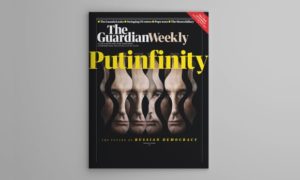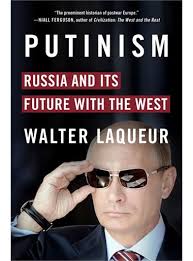The Kremlin ‘hired a network of Britons to go after enemies of Putin,’ The Guardian reports.
Who will rule Russia when Vladimir Putin is gone? The Russian president recently reignited speculation about his succession plans by proposing a series of constitutional changes, on which parliament will vote this week, and by installing Mikhail Mishustin, a near-anonymous technocrat who for years headed the country’s tax service, as his new prime minister, notes Council on Foreign Relations analyst Stephen Sestanovich. Some experts predict Putin will step down before his fourth and final term ends in 2024; others insist he aims to create a new position enabling him to evade term limits and rule indefinitely. Everyone wonders whether Mishustin is the cipher he seems or a successor in waiting. Nobody, to say the very least, has any idea, he writes for Foreign Affairs:
To anyone who knows Russian history (or who saw The Death of Stalin (above), the 2017 comedy about the Soviet dictator’s demise and its aftermath), it may seem obvious that the power ministries will play an important role in any succession scenario. From compromising information and behind-the-scenes threats to truncheons and even tanks, they have a lot to offer a new president trying to consolidate power. But their impact reaches far beyond succession itself: how the Russian system evolves after Putin will depend on whether a new president—regardless of who it is—gets these institutions to do what he wants or whether they get him to do what they want. ….A less personalized, more institutionally focused public assessment of how the Russian system works won’t just provide a better indication of what the future holds…

The Guardian
By obsessing so much about Putin himself—who has, alas, usually been the most popular part of his own system—all of us have made it easier for him to persuade his public that Western governments and societies are incorrigibly hostile to their country, adds Sestanovich, a former National Endowment for Democracy (NED) board member. If that is what ordinary Russians believe, they will be even less likely to turn against the deep state, even though it is among the least popular—and most predatory—components of Putinism. RTWT
When Putin became president of Russia, 20 years ago, the country was reeling from Boris Yeltsin’s mishandling of the transition from communism to capitalism, the Henry Jackson Society observes:
Over the course of the previous decade, the country’s economy had almost halved in size and its enfeebled military had lost a war in tiny Chechnya. Two decades on, per capita income has nearly doubled in hard currency terms and Russians are more globally connected than at any period in the country’s history.
 But that is not the whole story. Oil prices, rather than astute policymaking, have been responsible for economic growth. Russia has gone from being a partner of the West to being akin to a pariah state; it has been to war with two of its neighbours over the last dozen years, and actively seeks to undermine the rules-based international order. One-seventh of the population, or some 20 million people, live below the poverty line.
But that is not the whole story. Oil prices, rather than astute policymaking, have been responsible for economic growth. Russia has gone from being a partner of the West to being akin to a pariah state; it has been to war with two of its neighbours over the last dozen years, and actively seeks to undermine the rules-based international order. One-seventh of the population, or some 20 million people, live below the poverty line.
13:00 – 14:00. Tuesday, 17th March 2020. CR TBC, House of Commons, Westminster, SW1A 0AA
SPEAKERS:
Bridget Kendall MBE
Master of Peterhouse, Cambridge University and
Host of The Forum, BBC World Service
Professor Robert Service
Emeritus Professor of Russian History, St Antony’s College, Oxford and
Senior Fellow, Hoover Institution, Stanford
Sir Andrew Wood
Associate Fellow of the Russia and Eurasia programme, Chatham House
British Ambassador to Yugoslavia (1985-1989)
Former Ambassador to Russia (1995 – 2000)







